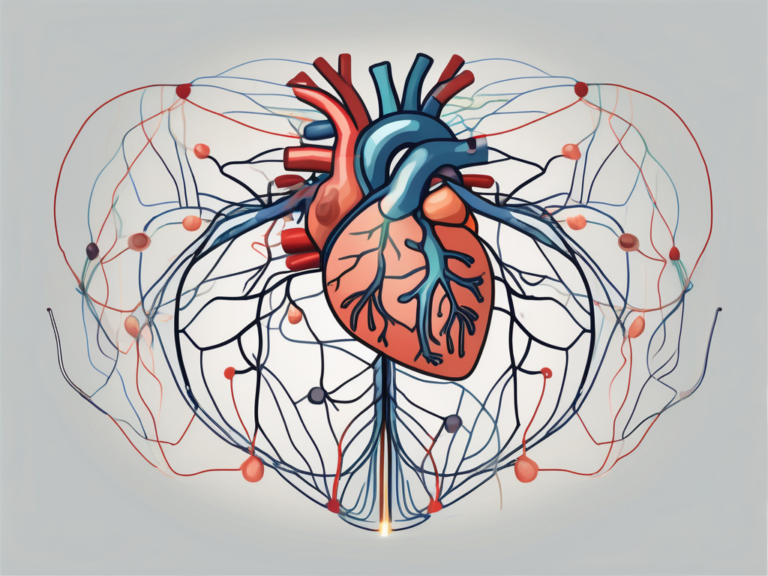Discover if You Have Broken Heart Syndrome with This Quiz
Are you experiencing a pounding heart, shortness of breath, or chest pain? It could mean you have Broken Heart Syndrome! But don’t worry, it’s not as scary as it sounds. Take this quiz to find out if you might be suffering from the condition that’s more common than you think.
Understanding Broken Heart Syndrome
What is Broken Heart Syndrome?
Broken Heart Syndrome, also known as takotsubo cardiomyopathy, is a temporary heart condition that mimics a heart attack. It can be triggered by intense emotional stress, such as the loss of a loved one or a breakup.
Unlike a heart attack, Broken Heart Syndrome is usually reversible and doesn’t cause permanent damage to the heart. It’s important to recognize the symptoms and seek medical help to ensure proper treatment and care.
Symptoms of Broken Heart Syndrome
The symptoms of Broken Heart Syndrome are similar to those of a heart attack and may include chest pain, shortness of breath, irregular heartbeat, and sudden weakness. These symptoms can be frightening, but it’s important to stay calm and take the necessary steps to determine if Broken Heart Syndrome is the cause.
In some cases, the symptoms can be severe and may require immediate medical attention. It’s always better to be safe than sorry, so don’t hesitate to seek professional help if you’re unsure.
Causes and Risk Factors
The exact cause of Broken Heart Syndrome is still not fully understood, but it is believed to be related to the surge of stress hormones in the body. These hormones can temporarily disrupt the normal functioning of the heart and lead to the symptoms associated with Broken Heart Syndrome.
There are several risk factors that may increase your chances of developing Broken Heart Syndrome, including being female, experiencing intense emotional stress, having a history of neurological disorders, or having a history of heart disease. It’s important to be aware of these factors and take precautions to protect your heart health.
The Connection Between Emotional Stress and Broken Heart Syndrome
The Role of Stress Hormones
When we experience emotional stress, our bodies release stress hormones like adrenaline and cortisol. These hormones can have a profound effect on our physical well-being, including the functioning of our hearts.
In the case of Broken Heart Syndrome, the surge of stress hormones can temporarily weaken the heart muscles and cause the symptoms associated with the condition. Understanding the role of stress hormones is essential in recognizing and managing Broken Heart Syndrome.
Emotional Triggers of Broken Heart Syndrome
Broken Heart Syndrome is often triggered by intense emotional events such as the loss of a loved one, a sudden breakup, financial stress, or a traumatic event. These emotional triggers can cause a surge of stress hormones in the body and lead to the development of Broken Heart Syndrome.
It’s important to be aware of the emotional triggers in your life and take steps to manage and cope with them effectively. Seeking support from loved ones, practicing stress-reducing techniques, and engaging in self-care activities can all help reduce the risk of developing Broken Heart Syndrome.
The Science Behind the Quiz
How the Quiz Works
This quiz is designed to assess your risk of having Broken Heart Syndrome based on your symptoms, personal history, and emotional well-being. It consists of a series of questions that will help determine if you might be experiencing Broken Heart Syndrome.
Remember, this quiz is not a substitute for medical advice, diagnosis, or treatment. It’s always important to consult with a healthcare professional for an accurate diagnosis and appropriate care.
The Psychology of Self-Assessment
Self-assessment quizzes can be a valuable tool in understanding our mental and physical health. They allow us to reflect on our experiences, feelings, and symptoms, and provide insights that can guide us towards the right path of healing and recovery.
By taking this quiz, you’re taking an active role in your own health and well-being. Remember, knowledge is power, and the more you know about Broken Heart Syndrome, the better equipped you’ll be to detect and manage it.
Taking the Broken Heart Syndrome Quiz
Preparing for the Quiz
Before taking the quiz, find a quiet and comfortable place where you can focus and answer the questions honestly. Grab a cup of tea, put on some calming music, and take a deep breath. It’s important to approach the quiz with a relaxed and open mindset.
Remember, there are no right or wrong answers. The purpose of this quiz is to provide you with insights into your heart health and help you make informed decisions about seeking medical help if necessary.
Interpreting Your Results
Once you’ve completed the quiz, you’ll receive a score that reflects your risk of having Broken Heart Syndrome. It’s essential to interpret the results in conjunction with your personal experiences and seek professional medical advice if you have any concerns or uncertainties.
Remember, this quiz is not a definitive diagnosis. It’s simply a tool to raise awareness and encourage further exploration of your heart health. If you’re experiencing any symptoms or concerns, don’t hesitate to consult with a healthcare professional for a thorough evaluation.
What to Do if You Have Broken Heart Syndrome
Seeking Medical Help
If you suspect you have Broken Heart Syndrome, it’s crucial to seek medical help promptly. A healthcare professional will evaluate your symptoms, perform necessary tests, and provide appropriate treatment options.
Don’t ignore or downplay your symptoms. Your health and well-being should always be a top priority, and seeking medical help ensures you receive the care and support you need.
Coping Strategies and Emotional Support
Dealing with Broken Heart Syndrome can be emotionally challenging. It’s important to find healthy coping strategies and seek emotional support from friends, family, or even support groups.
Engaging in activities that bring you joy, practicing relaxation techniques, and talking openly about your feelings can all contribute to your emotional well-being and aid in your recovery process.
Prevention and Lifestyle Changes
While Broken Heart Syndrome can’t always be prevented, certain lifestyle changes can help reduce your risk. Prioritize self-care, manage stress effectively, engage in regular exercise, maintain a healthy diet, and get enough sleep.
By taking proactive steps to maintain your heart health, you not only decrease the chances of developing Broken Heart Syndrome but also improve your overall well-being.
Remember, the journey towards heart health is a continuous process. By staying informed, seeking support, and taking care of your emotional well-being, you can lead a thriving and vibrant life. Take the quiz today and embark on the path to self-discovery!






